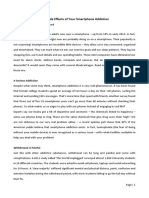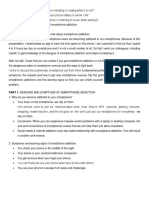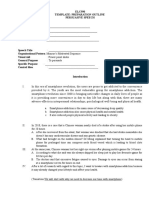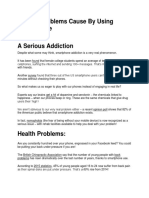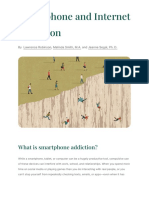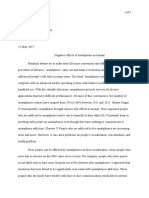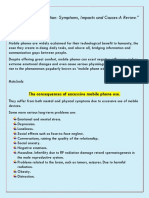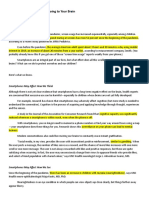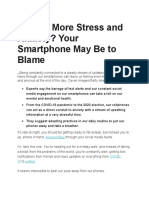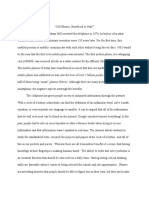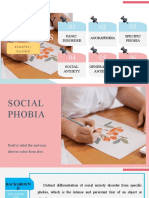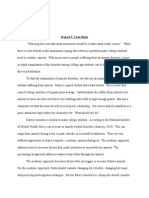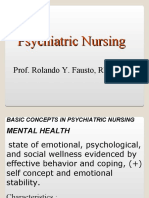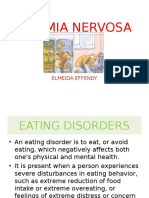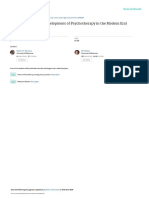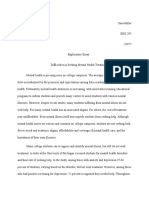0% found this document useful (0 votes)
36 views2 pagesTran
The document discusses the unintended negative consequences that smartphone use can have on health, including disrupting sleep patterns, reducing attention and concentration, and increasing anxiety and depression. Heavy smartphone use is common, with people spending 3-5 hours per day on their phones. Frequent checking of notifications can negatively impact focus and lead to addiction-like behaviors as people seek dopamine releases from social media likes and responses.
Uploaded by
Nguyễn Ngọc TrânCopyright
© © All Rights Reserved
We take content rights seriously. If you suspect this is your content, claim it here.
Available Formats
Download as DOCX, PDF, TXT or read online on Scribd
0% found this document useful (0 votes)
36 views2 pagesTran
The document discusses the unintended negative consequences that smartphone use can have on health, including disrupting sleep patterns, reducing attention and concentration, and increasing anxiety and depression. Heavy smartphone use is common, with people spending 3-5 hours per day on their phones. Frequent checking of notifications can negatively impact focus and lead to addiction-like behaviors as people seek dopamine releases from social media likes and responses.
Uploaded by
Nguyễn Ngọc TrânCopyright
© © All Rights Reserved
We take content rights seriously. If you suspect this is your content, claim it here.
Available Formats
Download as DOCX, PDF, TXT or read online on Scribd
/ 2

